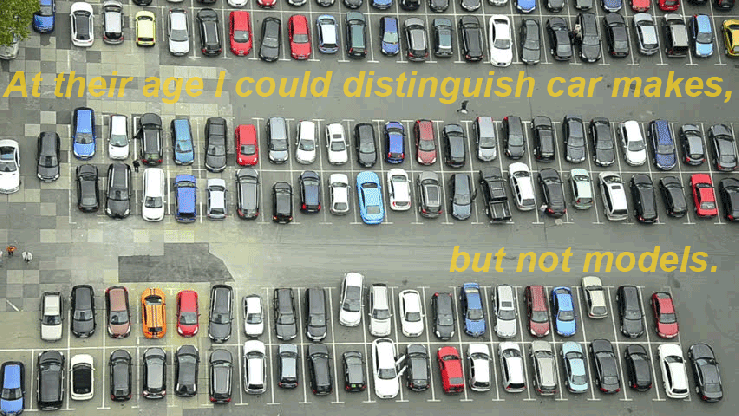Bricked on the Tarmac
When I first travelled to Israel on a Birthright trip in 2014, I was shocked to find that my nearly new Samsung Galaxy s Blaze 3G smartphone could not find a mobile network. This was especially disturbing to me since a T-mobile agent had told me my phone would work in Israel, although I would have to pay an international rate, and I had promi sed my parents that I would text them upon arrival. I worried what my parents must have been thinking, seeing confirmation on the airline’s website that the flight had landed, but without receiving a text message from me. Would they think that I had been detained by airport security? That I was injured? That someone stole my phone? In a panic, I rented a flip-phone, a old Nokia model identical to one which I had owned a few years prior. With it, I texted my parents and all was well. Ironically, in any other situation I had ever experienced, I would have considered the 1G Nokia flip-phone to be inferior to the 3G Galaxy sBlaze, but the Nokia
sed my parents that I would text them upon arrival. I worried what my parents must have been thinking, seeing confirmation on the airline’s website that the flight had landed, but without receiving a text message from me. Would they think that I had been detained by airport security? That I was injured? That someone stole my phone? In a panic, I rented a flip-phone, a old Nokia model identical to one which I had owned a few years prior. With it, I texted my parents and all was well. Ironically, in any other situation I had ever experienced, I would have considered the 1G Nokia flip-phone to be inferior to the 3G Galaxy sBlaze, but the Nokia
 worked, while the sBlaze without a network was essentially a brick in the sense that it was nothing more than a rectangular prism of matter that I couldn’t interact with and was therefore dead weight.
worked, while the sBlaze without a network was essentially a brick in the sense that it was nothing more than a rectangular prism of matter that I couldn’t interact with and was therefore dead weight.
Going Back
Before I returned to Israel to teach English in aBedouin village, I did some research and found that my Blaze did not work because it could not function on the frequencies designated by the Israeli government for mobile phones, which are different from those designated by the FCC in America. I consulted a nifty chart on wikipedia that told me which frequencies are designated  for smartphone use in different countries. I went to the T-mobile store in the mall, picked up a Galaxy SIII for its international capability, upgraded my mobile plan to include unlimited international data and texting, then I went straight to Best Buy and bought a case (I wanted one with a high enough lip around the edge to provide a buffer between the ground and the screen if and when I drop it. The T-mobile store didn’t have such a case so I had to go elsewhere). I still had to rent another flip phone, though, to text and call the Israeli directors of the teaching program.
for smartphone use in different countries. I went to the T-mobile store in the mall, picked up a Galaxy SIII for its international capability, upgraded my mobile plan to include unlimited international data and texting, then I went straight to Best Buy and bought a case (I wanted one with a high enough lip around the edge to provide a buffer between the ground and the screen if and when I drop it. The T-mobile store didn’t have such a case so I had to go elsewhere). I still had to rent another flip phone, though, to text and call the Israeli directors of the teaching program.
Homesick? Nah. Out of touch? Yeah, maybe a little.
I remark on my impressions of using communications technology in Israel for my Introduction to Writings Arts blog:
“I was the only one in my cohort of volunteers with an unlimited international data plan for my smartphone. I also made the mistake of letting everyone know. For the first month and a half, each and every one of my colleagues asked to use my smartphone on a near daily basis to check their Facebook and email. Eventually, keeping track of who had my phone and re-signing in to all my accounts after someone used it became too much. So I began implying that the internet connection was broken (easily simulated by leaving RAM-intensive applications running in the background whenever someone asked to use my phone) and that put a stop to it.
WiFi was available in a nearby boxcar, which had once served as the contractor’s office during the construction of our center. There, under a bare bulb, I spent many nights waiting out the seven hour time difference, staying awake until one or two in the morning until my friends finished work and we could Facetime.
 Locals would often ask if I was homesick. Indeed, it struck me as odd that I was not homesick. Between email, Facebook, and text messaging on my smart phone, Facetime on my laptop, and even transatlantic telephone calls on a rented flip-phone, I spoke with my American friends and family as often as though I were home. However, upon returning home I discovered that technology was not the miraculous substitute for in person contact that I had thought it to be. Instead, the technology masked my friends’ and family’s facial expressions, diction, and body language which would have told me that they were in fact deeply worried about me the entire time I was abroad. During phone calls I disregarded awkward silences, attributing them to the split second it took for our voices to travel the five thousand miles. Over Facetime, I thought their grimaces were an effect of a lagging broadband speeds. I couldn’t possibly see who was wringing their hands after replying to one of my text messages.”
Locals would often ask if I was homesick. Indeed, it struck me as odd that I was not homesick. Between email, Facebook, and text messaging on my smart phone, Facetime on my laptop, and even transatlantic telephone calls on a rented flip-phone, I spoke with my American friends and family as often as though I were home. However, upon returning home I discovered that technology was not the miraculous substitute for in person contact that I had thought it to be. Instead, the technology masked my friends’ and family’s facial expressions, diction, and body language which would have told me that they were in fact deeply worried about me the entire time I was abroad. During phone calls I disregarded awkward silences, attributing them to the split second it took for our voices to travel the five thousand miles. Over Facetime, I thought their grimaces were an effect of a lagging broadband speeds. I couldn’t possibly see who was wringing their hands after replying to one of my text messages.”
Besides making me Mr. Popular, my smartphone was an indispensable tool during my travels. Other than texting my friends, I used it to make hostel reservations, locate restaurants, look up bus and train schedules, monitor my bank accounts, buy travel insurance, upload photos to Facebook, as a flashlight, and to read Wikipedia. I used it so much I took to carrying an external battery in my
 In Kaabiya, the Bedouin village in Israel’s northern Galilee district where we taught, the elementary school children identified my new smartphone model, despite the brand and model name being obscured by the cover, shouting “Galaxy telatah!” whenever I had it out. I asked how they knew the model without seeing the whole phone. My groupmate, who herself had a Galaxy “Hamsah” (five) explained, “They know the look of the camera, speaker and flash on the back.” It had never occurred to me that different models within the same smart phone line had distinct designs for the camera, flash, and speaker. I certainly would not have been able to pick my phone’s camera out of a line up. At their age, I couldn’t tell my grandmother’s car-phone from a police walkie-talkie, but they knew every detail of all smartphones. It became clear to me that digital literacy technology such as smartphones plays a much larger role in the lives of today’s children.
In Kaabiya, the Bedouin village in Israel’s northern Galilee district where we taught, the elementary school children identified my new smartphone model, despite the brand and model name being obscured by the cover, shouting “Galaxy telatah!” whenever I had it out. I asked how they knew the model without seeing the whole phone. My groupmate, who herself had a Galaxy “Hamsah” (five) explained, “They know the look of the camera, speaker and flash on the back.” It had never occurred to me that different models within the same smart phone line had distinct designs for the camera, flash, and speaker. I certainly would not have been able to pick my phone’s camera out of a line up. At their age, I couldn’t tell my grandmother’s car-phone from a police walkie-talkie, but they knew every detail of all smartphones. It became clear to me that digital literacy technology such as smartphones plays a much larger role in the lives of today’s children.
When I was their age, digital technology to me represented the cutting edge of art, from Disney & Pixar’s Toy Story, to the fractals my father generated for his master’s thesis, right down to the birthday cards that I crafted on Kid Pix. It was not the highly pertinent
 of paradigm of communication literacy which today’s children have only known it as. My
of paradigm of communication literacy which today’s children have only known it as. My
first memory of using any digital technology at all was my father’s “CoCo” (color computer) on which I could draw a line on the screen using a joystick. My father recently revealed to me that he had written that line program himself.
Far beyond drawing lines and animating cowboy dolls, modern children’s first experience with digital technology is a new paradigm for doing virtually everything. I can think of no analogues from my childhood for which I would know different models of different things. Perhaps the closest I ever got to that was distinguishing different cars by the time I got to middle school. I could distinguish say a Ford Escort from a Cadillac Escalade, but I certainly wouldn’t have been able to tell a ‘02 Nissan Xterra from a ‘03 based on the tail lights.
But even with all they could do digital communication will still be limited compared to talking in-person.
While interviewing my best friend for this narrative, I also recalled an experience I had before leaving Israel of body language betraying things hidden in written and oral communication. My final days in Israel were the first days of Operation Protective Edge. Israel invaded the Gaza strip once more in response to Hamas rockets, launched against Israel in response to Jews rioting in Arabic Jerusalem neighborhoods, started in response to the discovery that four missing Israeli boys had been murdered in the West Bank, murdered in response to Israeli settlements there, and so on back into history. Some of my program director’s parting words to the group were blunt, “Don’t get drunk in case you have to run to an air raid shelter.” However, on my way to Ben-Gurion Airport on my final night, I stopped in Tel Aviv to meet with two Israeli friends of mine, a military techie and a former military medic turned personal trainer to some of Israel’s wealthiest, When I first met them in the “mifgash” (meeting) phase of my Birthright trip, they were cocky and confident that. But when I left all I saw were wan lips stretched into smiles. My friend kept telling me to calm down, and told me I could tell the airline I was afraid of the rockets if I missed my flight.


